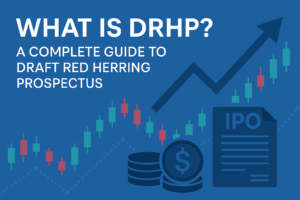Retail vs QIB vs HNI: Types of Investors in IPO & Their Allotment Rules

Introduction
Initial Public Offerings (IPOs) serve as a gateway for companies to raise capital and for investors to participate in a company’s growth journey. The Securities and Exchange Board of India (SEBI) has delineated specific investor categories Retail vs QIB vs HNI [Retail Individual Investors (RIIs), Qualified Institutional Buyers (QIBs), and High Net-Worth Individuals (HNIs)] each with distinct eligibility criteria, investment limits, and allotment processes. Understanding these categories is crucial for investors aiming to optimize their IPO investment strategies.
Investor Categories in IPOs
1. Retail Individual Investors (RIIs)
- Definition: Individual investors applying for shares with an investment amount up to ₹2,00,000.
- Eligibility: Resident Indian individuals, Hindu Undivided Families (HUFs), and Non-Resident Indians (NRIs).
- Reservation: SEBI mandates a minimum of 35% of the total IPO offer to be reserved for RIIs.
- Application Process: RIIs can apply using the cut-off price option, simplifying the bidding process.
2. High Net-Worth Individuals (HNIs) / Non-Institutional Investors (NIIs)
- Definition: Investors applying for shares with an investment amount exceeding ₹2,00,000.
- Eligibility: Includes individuals, HUFs, NRIs, companies, trusts, and other entities.
- Reservation: A minimum of 15% of the total IPO offer is reserved for HNIs/NIIs.
- Application Process: HNIs must specify a bid price within the price band; the cut-off price option is not available.
3. Qualified Institutional Buyers (QIBs)
- Definition: Institutional investors deemed to possess the expertise and financial capacity to evaluate and invest in the capital markets.
- Eligibility: Includes mutual funds, insurance companies, pension funds, foreign portfolio investors (FPIs), and banks.
- Reservation: At least 50% of the total IPO offer is reserved for QIBs.
- Application Process: QIBs must bid at a specific price within the price band; the cut-off price option is not permitted.
Allotment Processes Across Investor Categories
1. Retail Individual Investors (RIIs)
- Allotment Method: In cases of oversubscription, allotment is determined through a lottery system, ensuring that as many investors as possible receive at least one lot.
- Refunds: Unsuccessful applicants receive refunds promptly, typically within a week post-allotment.
2. High Net-Worth Individuals (HNIs) / Non-Institutional Investors (NIIs)
- Allotment Method: Allotment is done on a proportionate basis. For instance, if the HNI category is oversubscribed by 10 times, an investor applying for 10 lots may receive only one lot.
- Application Considerations: HNIs must ensure sufficient funds are available, as the application amount is blocked until allotment.
3. Qualified Institutional Buyers (QIBs)
- Allotment Method: Shares are allotted on a proportionate basis based on the quantity of shares applied for.
- Anchor Investors: A subset of QIBs, known as anchor investors, are allotted shares a day before the IPO opens to the public, providing confidence to other investors.
Strategic Considerations for Investors
Retail Investors
- Advantages:
- Higher reservation percentage increases chances of allotment.
- Option to bid at the cut-off price simplifies the application process.
- Challenges:
- Oversubscription can lead to allotment through a lottery, introducing an element of chance.
High Net-Worth Individuals
- Advantages:
- Ability to apply for larger quantities increases potential allotment.
- Proportionate allotment provides a more predictable outcome compared to the lottery system.
- Challenges:
- Requires significant capital commitment.
- Cannot bid at the cut-off price, necessitating careful price selection.
Qualified Institutional Buyers
- Advantages:
- Significant reservation percentage ensures substantial allotment.
- Early allotment through anchor investor provision allows for strategic positioning.
- Challenges:
- Regulatory requirements and due diligence processes can be complex.
Regulatory Framework and Compliance
- SEBI Guidelines: SEBI’s regulations ensure a balanced distribution of shares among different investor categories, promoting fairness and transparency in the IPO process.
- ASBA Mechanism: All investors are required to apply through the Applications Supported by Blocked Amount (ASBA) process, wherein the application amount is blocked in the investor’s bank account until allotment.
Conclusion
Understanding the distinctions between Retail, HNI, and QIB investor categories is essential for navigating the IPO landscape effectively. Each category offers unique opportunities and challenges, and investors must align their strategies accordingly. By comprehending the eligibility criteria, allotment processes, and strategic considerations, investors can make informed decisions and optimize their participation in IPOs.
Share this content:






Post Comment